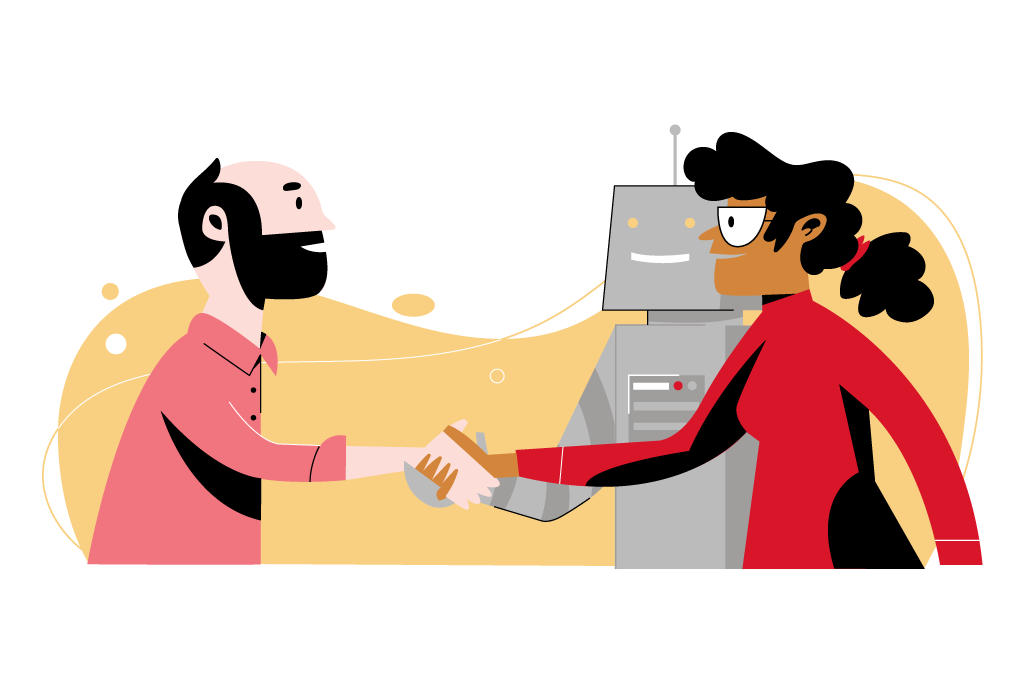Hiring Managers, You Should Want Candidates to Use ChatGPT to Pass Your Technical Interviews — Here’s Why

Like everything else around ChatGPT and other AI tools, the implications for developers and technical hiring have caused some unwarranted pearl-clutching and dark doomsday scenarios.
How can companies trust they’re hiring great developer talent if AI tools make getting take-home answers irrelevant? Are technical interviews even meaningful anymore? What if anyone can pass this interview now? Isn’t using an AI tool to pass a technical interview cheating?
Sigh. (And, as an aside, have you ever noticed that it’s only when tools open the door to helping more people – ahem, non-white, non-bros – accelerate or benefit that the heart palpitations around “fairness” and “cheating” seems to occur?).
Here’s a hot take. You should be saying:
Wow, a smart and curious person can spend time with AI tools and self-study coding and come up with a solid answer – that’s potentially equal to the work of people on your team. Hey, this means we can bias more toward hiring a motivated, curious, self-starting brain who works at problem solving and less toward a brain attached to a pedigreed resume, elite university degree, and socioeconomic status. I wonder if this will open the doors to entirely new groups of people to work in software development and create all new jobs and software solutions – what could we possibly create for our company?
The collective anxiety around generative AI seems like early man’s fear of fire. Like do you really, sincerely want to go back to a time when paradigm-shifting tools aren’t available? I know – let’s just give up the wheel while we’re at it. Let curiosity reign instead. Why not ask, how can tools make things better, more fair, more efficient?
We need to view AI as an opportunity for democratization of skills. It doesn’t mean just anyone can create software that solves the world’s problems. You still need people with drive, intellectual curiosity, energy, understanding of what they’re crafting, and an innovative spirit to turn out something worth creating and refining. But the opportunities for enabling more creators and more creators to do it more efficiently are awesome. Take this study which showed that AI actually increased worker productivity by 14%!
It is also an incredible acceleration opportunity for diversity. Now we can have people who have all kinds of brains and backgrounds applying their unique lenses to problems and opportunities. That’s so much better than always having the same overpriced engineers from Stanford and MIT apply similar approaches and – inevitably – getting the same outcomes. More diverse brains create better outcomes as we know (and the research clearly bears out).
Using tools like this in a technical interview setting isn’t cheating. It’s amazing. It’s resourceful. Why wouldn’t I, as a CEO, want someone who is smart enough to understand and make use of publicly available tools? It isn’t really new. This is already happening in the everyday work environment – developers and engineers find and use open source code, then augment, refine, and ship it. So what’s the problem? I don’t see one.
Maybe what happens now is that the developer paradigm shifts from writing code to editing it. That’s great! If more people can figure out how to refine code to achieve a company’s objectives, that is awesome. In case you haven’t heard, we’re in a severe developer shortage and it’s getting worse: projected to reach 85.2M by 2030. Adding to the ranks of available talent is a huge net positive.
Screening and interviewing remain an absolutely critical component of hiring. But it should be a more multidimensional approach. Assess on technical skills. Make sure they can articulate what is good and bad about their solution, can explain what problem they are solving, and can explain the thought process of the solution they have written. And then dial in hard on the parts that make someone a great teammate, a competent and compassionate leader, and a great communicator.
Technical interviews should always help us evaluate candidates’ ability to communicate technical concepts effectively, interact with colleagues, and contribute to a positive work environment. Just solving a technical take-home isn’t a green light to hire someone – but also solving a take-home with tools may be an indication of someone who is resourceful, creative and motivated.
This isn’t the time for companies to keep the gates closed, welcoming only those with specific degrees from certain schools or resumes with just Big Tech experience as “developers.” AI tools will help deliver a greater volume of desirable candidates to the front door. It’s time to throw it open wide and usher in this diversity of talent – and unlock a new era of software development.